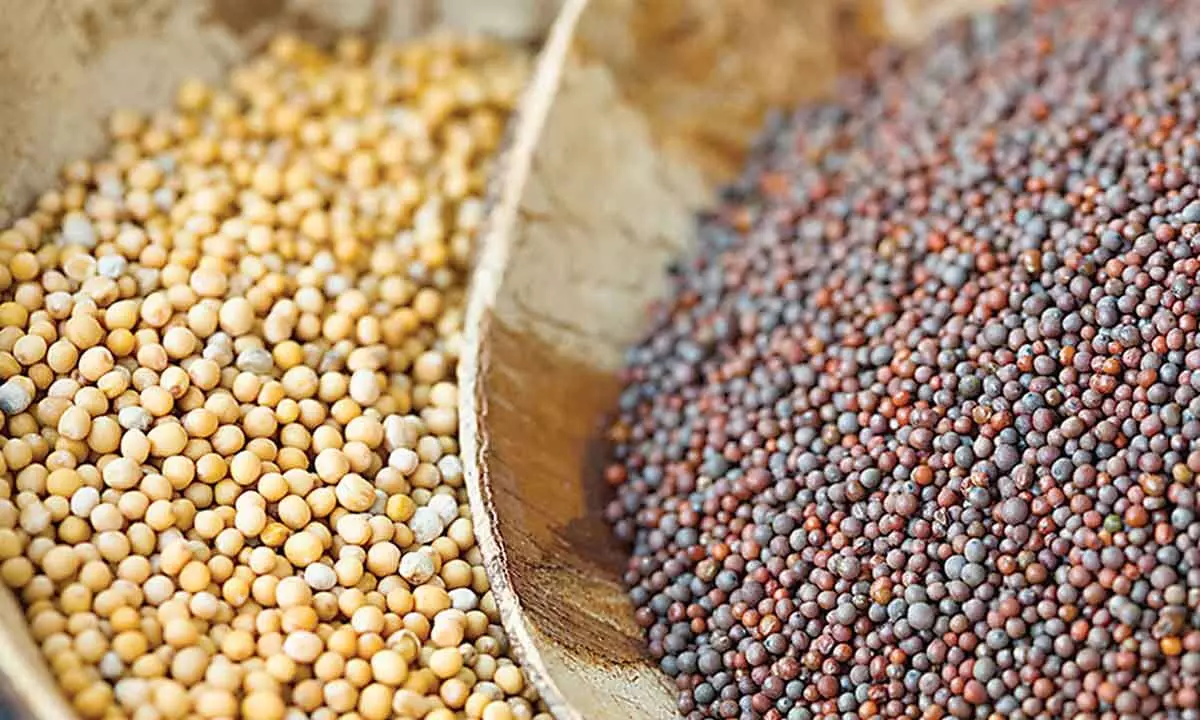Mustard seed prices rule below MSP
SEA seeks govt intervention as wholesale prices are less than MSP of Rs5,650/quintal
image for illustrative purpose

We urge the authorities to direct NAFED to establish procurement centers in major mandi areas to facilitate the purchase of mustard seeds at MSP, thereby supporting market stability and farmer welfare, said Ajay Jhunjhunwala, president, Solvent Extractors’ Association of India (SEA)
New Delhi: Edible oil industry body SEA on Friday expressed concern over wholesale prices of mustard seeds falling below the minimum support price of Rs5,650 per quintal and urged the government for immediate intervention.
“We urge the authorities to direct (cooperative) NAFED to establish procurement centers in major mandi areas to facilitate the purchase of mustard seeds at MSP, thereby supporting market stability and farmer welfare,” Ajay Jhunjhunwala, president, Solvent Extractors’ Association of India (SEA), in a statement.
MSP remains a crucial concern, particularly in the ongoing harvesting season for mustard. The current market prices of mustard seeds are below the MSP of Rs5,650, necessitating immediate government intervention, he said. Jhunjhunwala further said despite reaching a peak of 100 lakh hectares in acreage during the current season, mustard cultivation faces stagnation due to declining prices.
The disparity between past remunerative prices and the current market rates has discouraged farmers from expanding mustard cultivation. Addressing this issue is critical to sustaining agricultural growth and ensuring farmer prosperity, he added. That apart, SEA mentioned that the Wholesale Price Index (WPI) for edible oils, established in 2011-12, does not accurately reflect the evolving consumption patterns in recent years.
“The disproportionate weightage assigned to certain oils fails to align with their actual consumption trends. We have petitioned Ministry of Consumer Affairs, Food, and Public Distribution to reconsider the weightage allocation in light of changing consumption dynamics within the edible oil segment,” the SEA president said.
According to SEA, import dependency for edible oils continues to rise annually, with last year witnessing imports of 165 lakh tonne valued at Rs1.4 lakh crore. While imports are necessary to bridge the demand-supply gap, excessive imports have led to surplus inventory, posing challenges to both the government and the industry, the association said. It is imperative to strike a balance between domestic production and imports to ensure food security and economic stability, it added.

